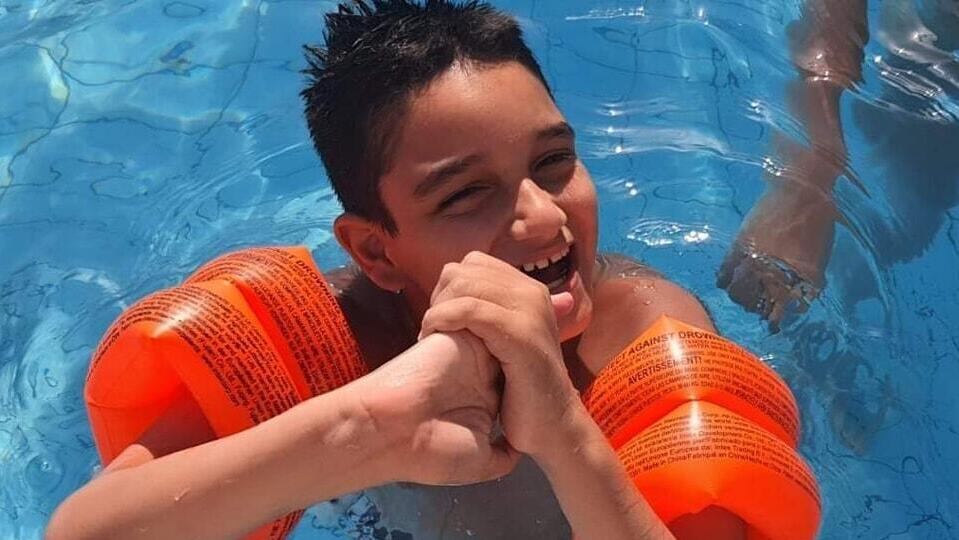Nadav Damari, a sociable and happy 7-year-old, was diagnosed with Angelman syndrome at the age of 2.5, after developmental delay and speech difficulties. His constant smiles sometimes go unnoticed by other children, leaving him misunderstood.
Angelman syndrome, named after British pediatrician Harry Angelman, who first described the syndrome in 1965, is a genetic disorder that mainly affects the nervous system. Symptoms include a small head and a specific facial appearance, severe intellectual disability, developmental disability, limited to no functional speech, balance and movement problems, seizures and sleep problems. Children usually have a happy personality and have a particular interest in water. The symptoms generally become noticeable by in the first year of life.
"These children are charming and love to smile, hug, and feel warmth, but they face the challenge of being unable to communicate verbally," Nadav's mother told Ynet Studio.
In a recent Facebook post, Inbal conveyed the poignant experience of Nadav's silence despite his beaming smile. "Nadav is swimming in the pool and is overjoyed. He approaches each child, using sign language to express friendship, asking them to play with him. I watch, amazed by his persistence. Most ignore him, some smirk, and a few look at me questioningly. Yet he doesn't give up, reaching out to each child, though no one seems to notice him," she wrote.
"Nadav is an unusually sociable child, he thirsts for company and friendships. He has good friends in his special education class, but when he interacts with unfamiliar children in public places, he struggles to connect with the environment," Inbal said when asked about the post.
When you first learn about your child's disability, it feels like your world is crashing down. Accepting this news is incredibly tough
"He is a communicative child, though not verbally, he makes an effort to express himself. He uses a dedicated app and has learned basic sign language. There's the 'friendship sign', a gesture he uses when he wants to interact with people. I spend hours trying to explain its meaning to others, but it's unfortunate that this sign isn't widely known, just like the 'peace' sign," she said.
"Nadav uses the gesture, but the children around him hesitate to respond. Our society finds it challenging to integrate and accept differences. As children don't often encounter someone like Nadav, I don't expect them to understand the sign's significance, which is why I wrote the post – to raise awareness," she added.
She says she noticed Nadav's cognitive impairment when he was very young. "From an early age, we noticed something amiss as Nadav didn't produce any sounds and experienced significant developmental delays. After numerous tests, we received the diagnosis of Angelman syndrome when he was 2.5."
"Personally, I can say that when you first learn about your child's disability, it feels like your world is crashing down. Accepting this news is incredibly tough. As time goes on and we delve into the world of disabilities, we learn to move beyond stereotypes and face everyday life. In this journey, we discover the wonderful aspects of these children, something only families with children with disabilities truly come to know," she said.



